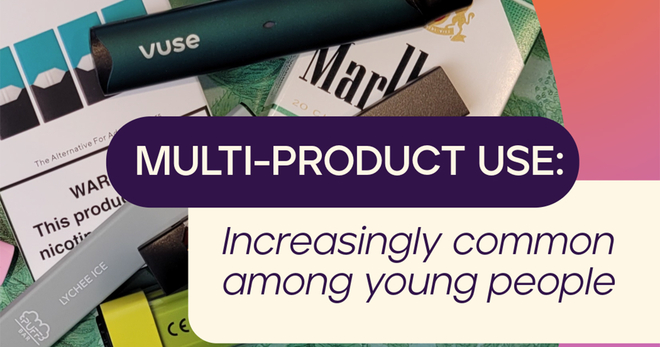FDA enforcement likely resulting in minimal impact on e-cigarette accessibility
None of the warning letters sent by the Food and Drug Administration to e-cigarette companies between 2020 and 2021 covered e-cigarette brands with a large market share and few addressed the e-cigarette product types most used by youth, according to a new Truth Initiative® study published in Tobacco Control.
The study – one of few to shed light on the focus of FDA e-cigarette enforcement – finds that nearly all warning letters sent during the timeframe targeted small, online retailers, likely resulting in minimal impact on the accessibility of e-cigarettes. Findings underscore the need for FDA transparency in regulating the e-cigarette market, as well as the importance of identifying violations made by larger companies that target youth and young adults.
Delays in e-cigarette enforcement continue
Regulatory delays by the FDA have allowed e-cigarettes to stay on the market for years without FDA review and authorization, setting the stage for the youth e-cigarette epidemic. In 2016, the FDA announced that it would require e-cigarettes to go through a pre-market approval process, but deadlines to submit applications in this process were extended until September 2020. In its latest delay, the FDA told a federal court in May 2022 that it won’t finish its review of marketing applications for the most popular e-cigarette products until June 2023 – nearly two years after a September 9, 2021, court-ordered deadline to do so, leaving some of the most popular youth brands on the market for yet another year without FDA authorization.
In 2017, the FDA began issuing warning letters to e-cigarette manufacturers, distributors, and retailers, notifying them that their products or activities violated regulations. Although the FDA has sent 700 letters through 2021, little is known about the warning letters, the companies that received them, and the products, infractions, and consequences identified, a gap researchers intended to fill with this study.
Enforcement focused on products no longer popular with young people
Truth Initiative researchers found that in total, the FDA issued warning letters to 303 different companies between January 2020 and September 2021. Nearly all letters were sent to small retailers, while none of the retailers, manufacturers, or distributors identified in the warning letters were large companies with any measurable market share, according to sales data. Researchers also found that 92.2% of infractions were for flavored e-liquids for refillable devices during both years, while most youth and young adults used pod mods and disposable devices.
Focusing on online rather than in-person sales
Researchers also found that most infractions – 75.2% overall and 92.1% in 2020 – were through FDA review of company websites. Although this trend is likely due to the COVID-19 pandemic halting in-person inspections, online sales only account for a third of the marketplace. The majority of young people get their products from friends (32.3%), buy them from another person (21.5%), or purchase the from a vape shop (22.2%). “Prioritizing the products most accessed by youth, which are made available from a variety of sources, will be important to curb youth use,” the authors write.
Next steps in regulating e-cigarettes
“This analysis of FDA warning letters from 2020-2021 tells us that the agency has only begun the process of exerting regulatory control for a relatively small segment of the market – namely small, online retailers,” the authors write.
In June 2022, FDA announced that it would deny marketing authorizations for all JUUL e-cigarettes – the brand largely credited with driving vaping’s popularity with young people – and then walked back its recommendations as it investigates “scientific issues unique to the JUUL application.”
Truth Initiative is calling on the FDA to swiftly complete its review of e-cigarette marketing applications, deny applications for all flavored e-cigarettes, and remove all unauthorized products from the market until it is able to complete its reviews. Application reviews should prioritize those products that have the greatest impact on youth, the researchers write.
More in emerging tobacco products
Want support quitting? Join EX Program
By clicking JOIN, you agree to the Terms, Text Message Terms and Privacy Policy.
Msg&Data rates may apply; msgs are automated.


